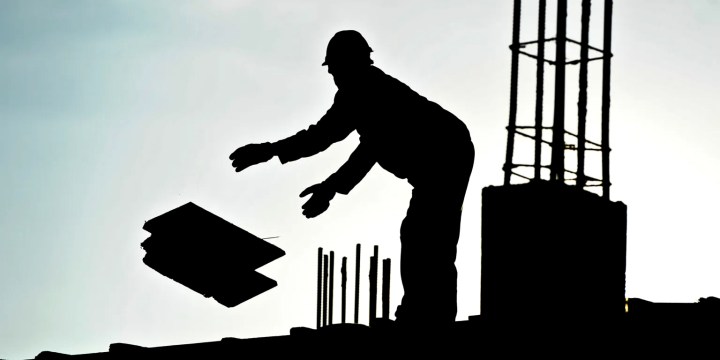ECONOMIC OUTLOOK
Building Confidence Index crumbles to pandemic levels in first quarter of 2024

The FNB/BER Building Confidence Index tanked in the first quarter (Q1) of this year to levels last seen during the initial hard lockdowns to contain the Covid pandemic. Worryingly, it points to a possible slowdown in the installation of solar panels by business and households.
Building confidence in South Africa – a key measure of wider confidence in the economy and investment trends – has effectively collapsed.
The FNB/BER Building Confidence Index plunged in Q1 of this year to 27 from 43 in the last quarter of 2023 – a fall of 16 points.
As the index ranges from zero to 100, this means confidence has cratered further into negative territory, with over 70% of respondents expressing dissatisfaction with current business conditions.
“This is the joint lowest level since mid-2020,” FNB noted.
The sector has not been this glum since the initial hard lockdowns during Covid. It underscores just how bad things have become.
It’s also revealing to note that the tepid 43 level reached in Q4 of last year was an eight-year high. A period of growing confidence from a low base has suddenly withered.
“There was a surge of building activity since Q3 2022 on the back of increased private investment in energy and the lagged effect of the relatively low interest rate environment in 2021 and 2022,” said Siphamandla Mkhwanazi, senior economist at FNB.
“Growth has since cooled. Indeed, according to Statistics South Africa, the real value of investment in buildings contracted by an annual rate of close to 6% in Q4 2023.”
This is worrying because it points to a possible slowdown in the installation of solar panels and other energy investments made by households and businesses in the face of rampant power cuts.
It’s also surely telling that one of the key drivers of building confidence has been measures taken to mitigate the impact of state failure.
For big business, there is still a huge pipeline of renewable energy projects, but perhaps smaller businesses and households that can afford such measures have already taken the plunge.
Continued growth in renewable energy investment is needed because the rotational power cuts would be far worse were it not for the private sector stepping up to the plate.
One big cause for concern is a nosedive in confidence among architects, who are deeply involved in new building plans. In Q4 of last year, 54% of architects were satisfied with prevailing business conditions. In Q1, that fell to 29%.
“It is easy then to claim that last quarter’s reading was an outlier. However, the trend in terms of activity was similarly volatile. This suggests that there may indeed have been a sudden and unexpected shift in architect work this quarter,” Mkhwanazi said.
And if architect work is suddenly drying up, that bodes ill for new building projects down the road.
This collapse in building confidence is worrying on many levels.
Construction and building are labour-intensive activities in an economy with an effective unemployment rate of well over 40%, based on its broadest definition.
Building is also a barometer of wider confidence in the economy.
The capital spent on building represents investment – the long-term kind that literally involves bricks and mortar. But this cornerstone of the economy is crumbling. DM

















 Become an Insider
Become an Insider
Comments - Please login in order to comment.